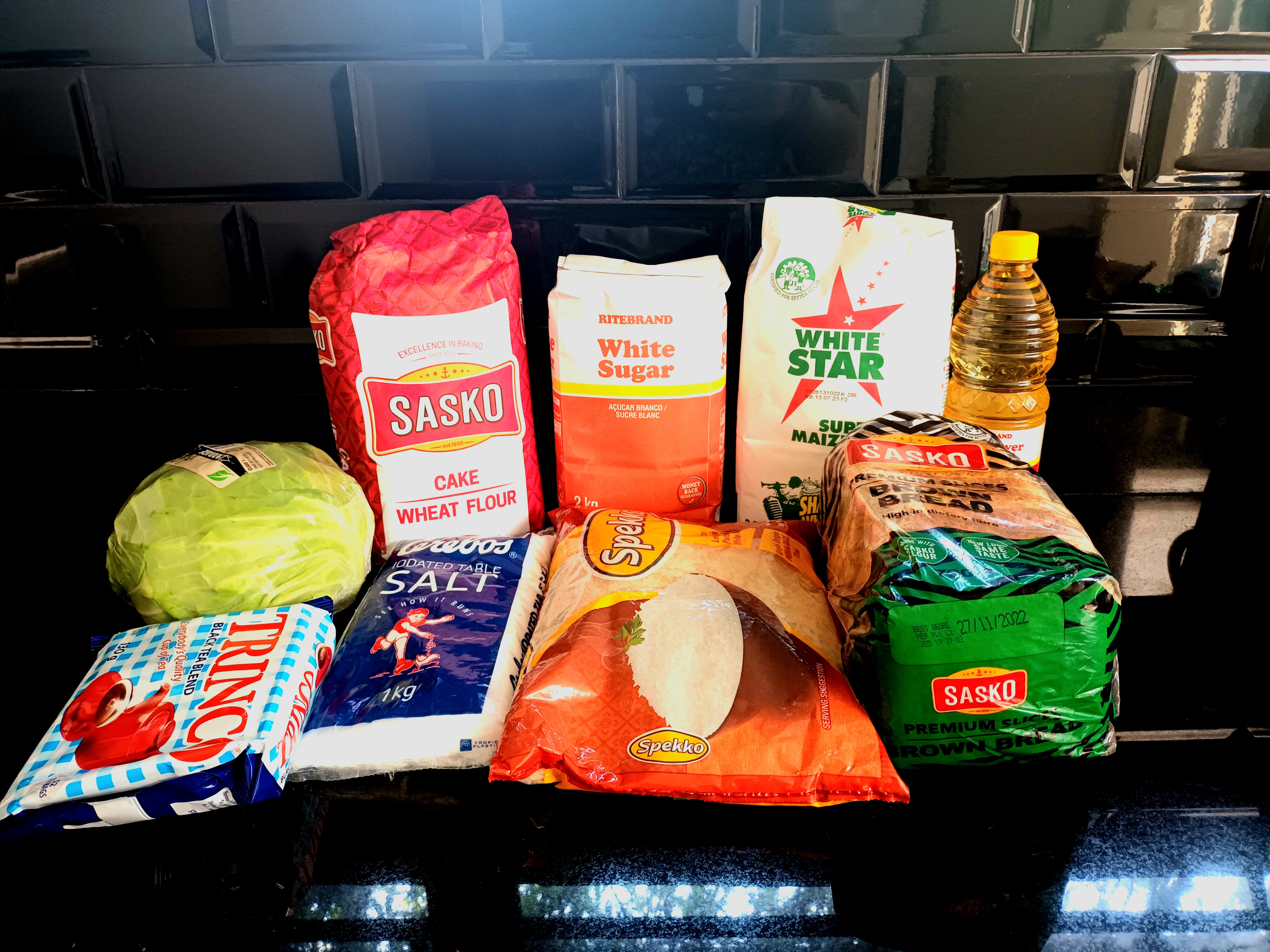The annual rate for food & non-alcoholic beverages (NAB) reached a 15-month high of 5.1% in June, Statistics SA revealed in the Consumer Price Index report released on Wednesday, 23 July 2025.
“Meat, particularly beef, continues to be the main driver of food inflation. Beef prices spiked for a third successive month, with high annual and monthly increases recorded for stewing beef, mince and steak. Stewing beef rose by an annual 21.2%, the fastest pace on record since the current CPI series began in January 2017.”
Maverick Citizen has been tracking the prices of 14 basic food items that a consumer can buy using R370, the amount of the Social Relief of Distress (SRD) grant. The food basket hovers above R400, making it unaffordable for those who receive the grant as their only source of income.
In our food basket, starches such as rice, flour and mealie meal decreased slightly, which might have given relief, but was countered by the higher prices of beef, fruit and vegetables. Higher electricity tariffs also struck in June.
“Other unprocessed food items also saw an uptick. The annual rates for fruits and nuts, and vegetables, remained in double-digit territory for a second straight month. Products that witnessed sharp price increases in the 12 months to June include beetroot, lettuce and carrots. Peanuts, however, were slightly cheaper,” the report reads.
“Inflation cooled across several food & NAB categories. Lower prices for white rice, hot cereals and cold cereals softened the annual rate for the cereal products category. Although maize meal continues to register high annual increases, the monthly change in June was 0.4%, the lowest since November 2024 (-0.1%),” the report said.
Many dairy products are cheaper than a year ago, but higher from month to month. Lower prices were recorded for fresh full-cream milk and fresh low-fat milk, and eggs. These decreases helped pull the milk, other dairy products and eggs index down into lower prices.
In the household Affordability Index food basket, the price of 44 essential items costs more than R6,000, while the average cost of the foods prioritised and bought first in the household food basket decreased by R27.25 from R2,955.34 in May 2025 to R2,928.09 in June 2025. But people are paying R83.87 (2.9%) more this year than they were in June 2024 for the same food basket.
Read more: New foot and mouth disease outbreak in Free State cattle
This is particularly hard on grant recipients and workers on minimum wage.
The report says the implications are malnutrition and hunger, as families navigate the costs of food and their other primary bills.
“When the prices of core foods increase, there is less money to secure other important, mostly nutritionally rich foods, which are essential for health and well-being and strong immune systems (meat, eggs and dairy, which are critical for protein, iron and calcium; vegetables and fruit which are critical for vitamins, minerals and fibre; and maas, peanut butter and pilchards, good fats, protein and calcium, essential for children,” the report reads.
 “The data shows that the core foods contribute 54% of the total cost of the Household Food Basket. At an average cost of R2,928.09 in June 2025, these foods are relatively very expensive in relation to the total money available in the household purse to secure food. These foods must be bought regardless of price escalations,” the report says.
“The data shows that the core foods contribute 54% of the total cost of the Household Food Basket. At an average cost of R2,928.09 in June 2025, these foods are relatively very expensive in relation to the total money available in the household purse to secure food. These foods must be bought regardless of price escalations,” the report says.
The report plays out multiple minimum wage scenarios, considering transport and electricity, and other basics people prioritise.
“The maximum wage of R4,606.40 in June 2025, when disbursed in a family of four persons, is R1,151.60. This is below the upper-bound poverty line of R1,634 per capita per month. Set at such a low level, the National Minimum Wage] works to institutionalise the low-baseline wage regime and lock millions of workers into poverty.”
The report states that lack of wage raises, or raises that do not keep up with inflation, leave workers poorer each year and unable to keep up with price rises.
“The minimum shortfall on food for a family is 48.5% in June 2025. After paying for transport and electricity, workers are left with R1,963.43. If all of this money went to food, [for] the family of four, it would provide R490.85 per person per month. The Food Poverty Line is R796 per person per month,” the index reads. DM






 Meat, particularly beef, continues to be the main driver of food inflation. (Photo: Supplied)
Meat, particularly beef, continues to be the main driver of food inflation. (Photo: Supplied) 